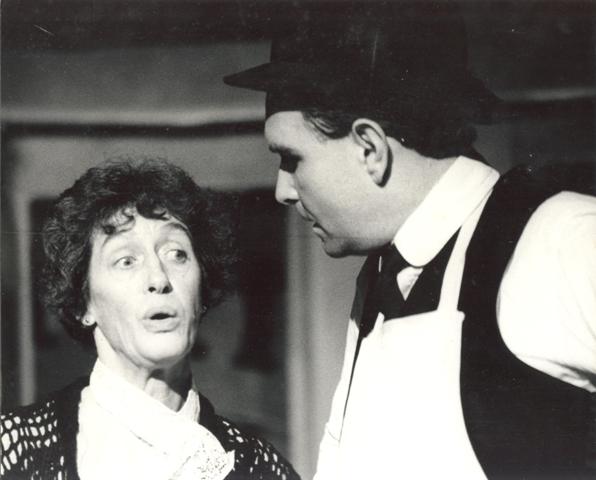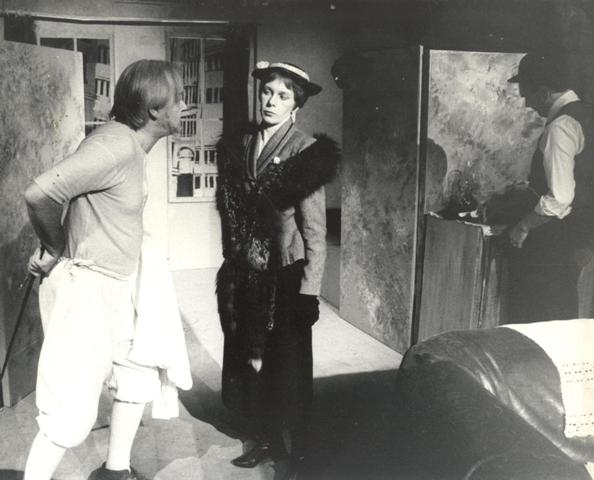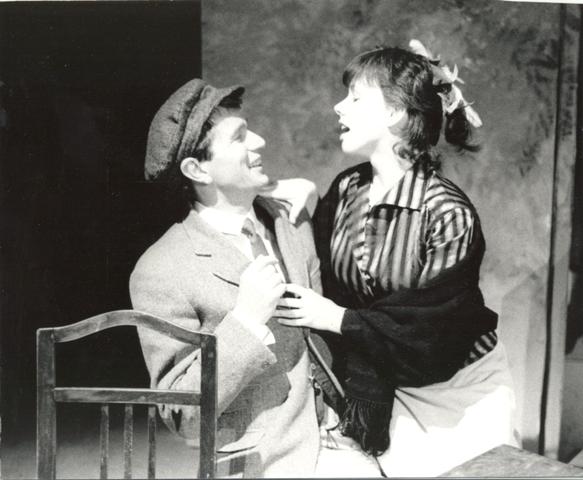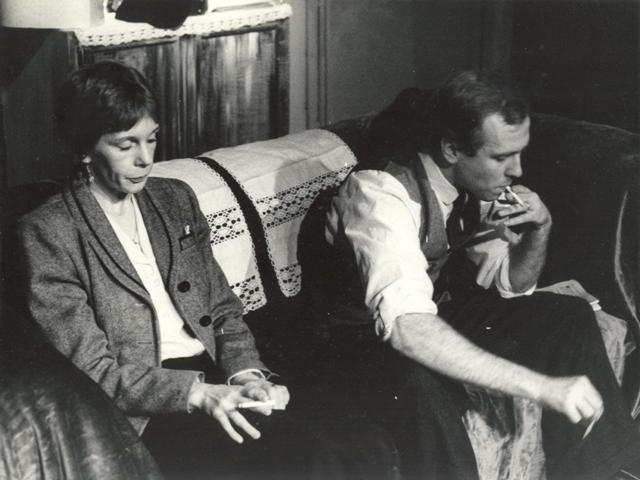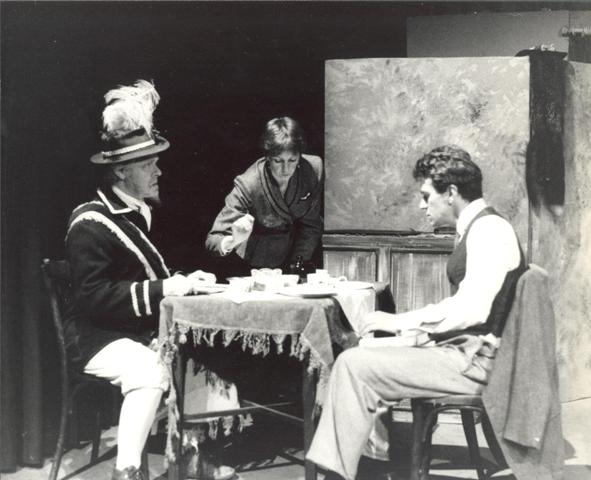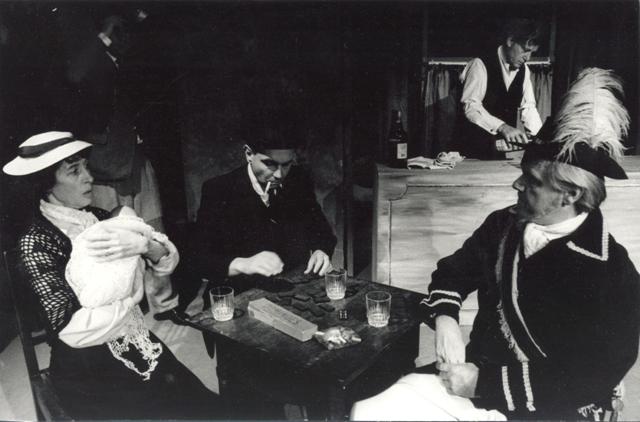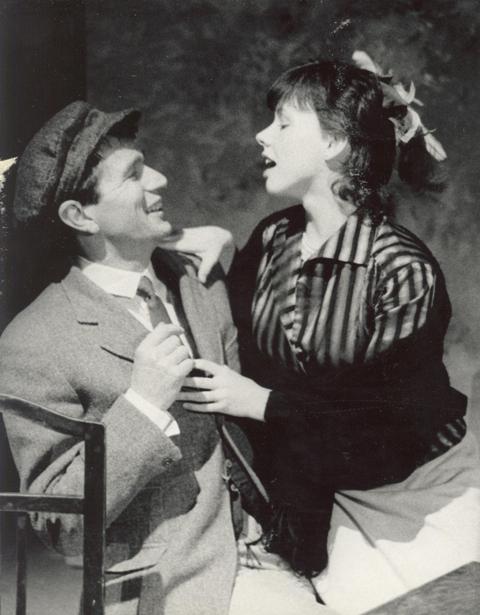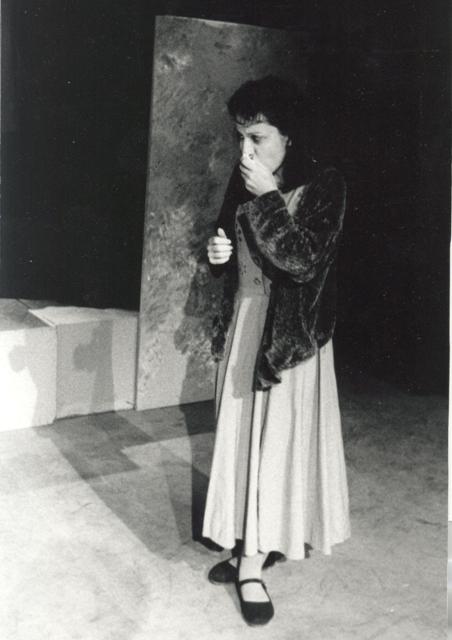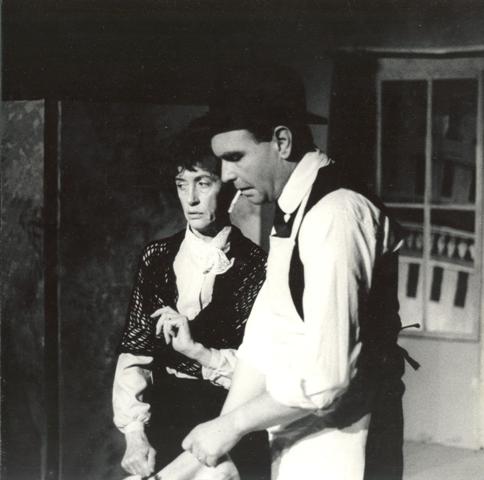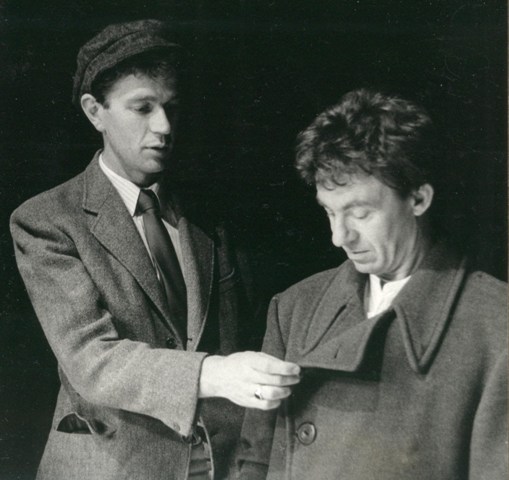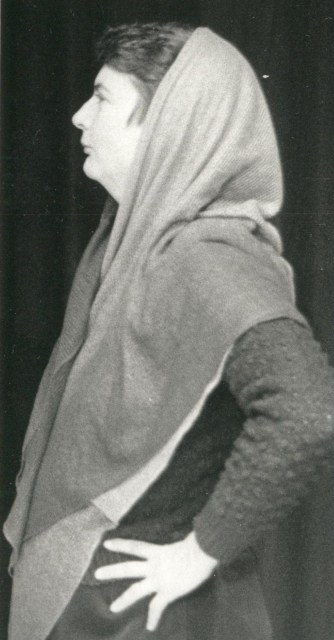The Bench Production
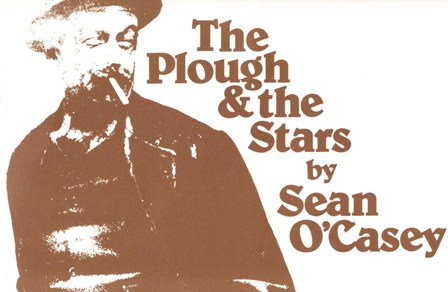
This play was staged at Havant Arts Centre, East Street Havant - Bench Theatre's home since 1977.
Characters
| Nora Clitheroe | Jo German |
| Bessie Burgess | Nicola Scadding |
| Jack Clitheroe | David Hemsley-Brown |
| Fluther Good | David Penrose |
| The Covey | John Valentine |
| Mrs Maggie Gogan | Robbie Cattermole |
| Peter Flynn | Stuart Hartley |
| Mollser Gogan | Debbie Valentine |
Crew
| Director | John Scadding |
Reviews
The NewsMargaret West
Uprising drama still relevant
When Sean O'Casey wrote "The Plough and the Stars", about the 1916 Easter Uprising in Dublin, he probably never dreamed how relevant his play would be more than 70 years later. The centuries-old friction between native Catholics and Protestant usurpers - today centred on Ulster - exploded during World War I when Irish patriots in Dublin refused to believe the British Government's promise of independence for Ireland once hostilities against Germany had ceased.
O'Casey's tragi-comedy, presented by The Bench Theatre, Havant, follows the preparations for the Republican uprising through the lives of ordinary Dubliners living in a run-down tenement block. Against a marvellous set suggesting the shabby glories of the city's Georgian architecture, the men of the Irish Citizen Army plot their demonstration, while thousands of other Irish volunteers are fighting on the British side in France. The men are idealistic, impractical, at times very funny, and totally unprepared to meet the crushing strength of the British Army. It is the women who are left to forget their religious and political differences, and support each other through the reality of the bereavement. Two riveting performances are given by Jo German as the newly-wed Catholic Nora Clitheroe - who loses both husband and unborn child - and Nicola Scadding as Bessie Burgess, a middle-aged Protestant with the courage to comfort her.
O'Casey's attitude to the rising was equivocal, but the dialogue he uses to express the people's suffering is superb. "Her eyes have a haunting way of looking in, but looking out" says one character. "None of us knowing when we would bump into a world we were never in before" - says another.
Strong performances were also given by the rest of the large cast, notably Robbie Cattermole as a charwoman and Debbie Valentine as her consumptive daughter; David Penrose, as the carpenter, David Hemsley-Brown as the young husband, John Valentine as Nora's cousin and Stuart Hartley as her uncle. Directed by John Scadding, the show continues tonight, and from Tuesday to Saturday at Havant Arts Centre at 7.30 p.m.
The News, 4th December 1987
